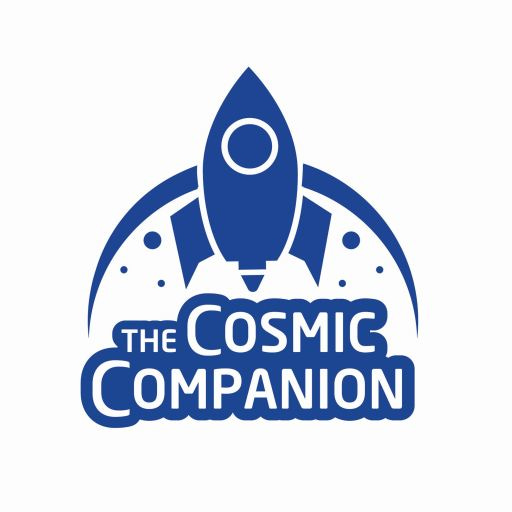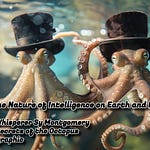This week on The Cosmic Companion, we look at Making Space Sustainable, talking with Daniel Bock from Morpheus Space. We’ll be looking at how we can move into the inner solar system while protecting the environments of Earth, the Moon, and Mars, as well as the future of space travel.
The first and most obvious way to improve the sustainability of spaceflight is through the use of reusable boosters, and the development of greener fuel alternatives. Biofuels, for example, emit fewer harmful particles into the atmosphere and are an important step towards reducing carbon emissions during launch.
Lifting off from Earth takes nearly all the fuel in a rocket, and most systems today shed empty fuel tanks and boosters once they pass beyond our planetary atmosphere.
Listen to the podcast version of this episode here, or watch it as a video!
This process can also shed smaller debris, potentially posing future hazards. There are currently 27,000 pieces of spaceborne flotsam larger than a softball being tracked in orbit around the Earth, and there could be 100 million such pieces larger than a millimeter in diameter whizzing around our world.
[Well, that’s a whole lot of space junk now, isn’t it?] {sure is!}
Being hit by a screw is one thing. Being hit by a screw flying at 10 kilometers a second is an entirely different issue.
Minimizing waste released into space is a priority, keeping low-Earth orbit as clear as possible for spaceflight.
Apple co-founder and pioneer of the personal computer revolution, Steve Wozniak, recently founded Privateer Space, focused on clearing potentially-hazardous debris from low-Earth orbit.
[WOOOOZZZZZZZZZZ!!!] {Yeah, He’s cool.}
The Orbex Prime rocket is designed to be one of the most environmentally-friendly launch systems ever designed. This two-stage rocket is 19 meters tall… I’ll save you the math. That’s…
…8.6 Peter Mayhews standing on top of each other. [RrRRrrRR] You’re welcome!
Powered by a 3D-printed propane-fueled engine, this green booster is reusable, produces 96% fewer emissions than comparable boosters, and the system leaves no debris in orbit. [<<< As far as propane accessories go, the Orbex is good as all git out, tell you what.]
The ultimate in clean fuels may be solar sails. These are EXACTLY what they sound like — spacecraft powered through the pressure of light from the sun, gently pushing on a large, reflective sail. Once in space, these sails create a gentle, yet continuous acceleration capable of taking a spacecraft from one planet to another.
And the best part? No fuel required! Solar sails could offer us a clean, sustainable and a cost-effective way of exploring the Cosmos. They could also be attached to wayward space junk, moving debris out of the way of active satellites.
As our species grows, heading out into the Cosmos, we can explore and populate the Moon and Mars. This exploration will drive science, social progress, and technology. The means to do that in the coming years and decades are being developed right now, by both nations and startups around the globe.
Next up, we talk with one of those innovators, Daniel Bock, CEO and co-founder of Morpheus Space.
As space tourism grows, costs to travel beyond the Earth will plummet. Within a decade or so, the price of a trip to space should equal that of a luxury cruise on the oceans of Earth. Still out of the reach of most people, but low enough to make space tourism far more common than it is today.
As this industry grows, it’s essential to consider the impact it will have on the environment of Earth as well as destinations beyond our home world.
The Age of Sail lasted for three centuries — from about 1550, when Copernicus first put forth his wacky idea that the Earth revolves around the Sun until about 1850, just before the invention of the refrigerator.
Similar sailing ships could once again soar to distant worlds — this time, racing through the vast expanse of space, powered by the constant push of light from our life-giving star.
This technology could also be adapted to passenger ships, riding the breeze of light from our parent star. Guests will marvel at the beauty of space, soaring aboard the environmentally-friendly sailing ships of the 21st century and beyond.
The future of space travel is not just about reaching for the stars, but also about preserving the beauty and wonder of worlds for future generations to enjoy. By adopting more sustainable practices, we can continue to explore the Cosmos while reducing our impact on the environment. So, let’s raise the solar sails and set our sights on a greener future for space exploration!
Next week on The Cosmic Companion, we look at Diversity in Space Exploration from the dawn of the space age to our future among the stars. We’ll be talking with Meredith Bagby, author of The New Guys, the story of NASA’s legendary Class of 1978.
If you enjoyed this episode of The Cosmic Companion, please subscribe, follow, share, and tell your friends about the show. Head on over to TheCosmicCompanion.com and sign up to get every episode in your email inbox. Free and VIP subscriptions are available! Educators get 25% off VIP subscriptions with any .edu email address!
Clear skies!
James
























Making Space Sustainable w/ Daniel Bock from Morpheus Space